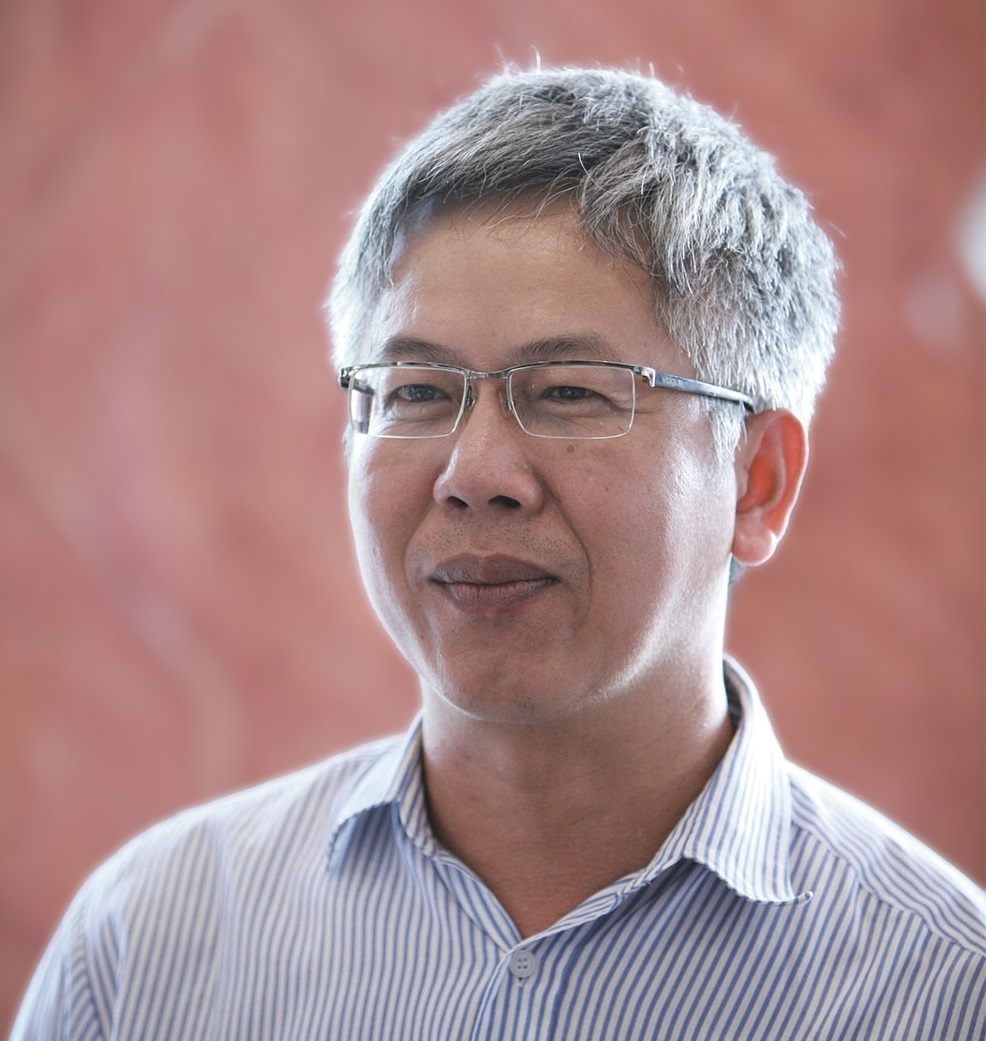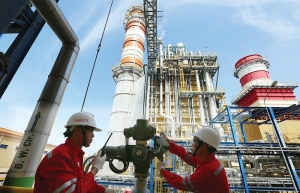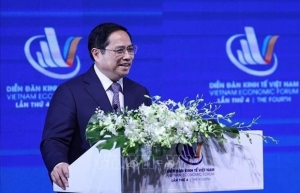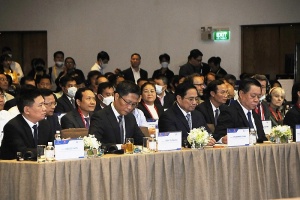INTERNATIONAL INVESTMENT
AND PORTAL
Becoming an independent and self-reliant economy has been a long-term journey. How is this idea rooted in the country’s long-lasting development history?
 Dr. Nguyen Duc Kien, head of the PM’s Economic Advisory Group
Dr. Nguyen Duc Kien, head of the PM’s Economic Advisory Group
Building an independent, self-reliant economy, deeply integrated with the global economy, is not only an aspiration but a guideline in national construction that has been set out since Vietnam secured national independence. Due to historical circumstances, we could not do this until the country was completely liberated.
Before the mid-1980s, the concept of an independent and self-reliant economy was synonymous with being proactive, independent, and autonomous in everything from production, circulation, to distribution in a closed circle, including self-sufficiency and reducing dependence on foreign countries as much as possible.
The closed mode of economic management was increasingly blurred since the country opened up and began to integrate, especially from 2007 when Vietnam became a member of the World Trade Organization. However, the country’s economic potential was minimal at that time, lacking everything except cheap labour. Economic independence and deep participation in the global economy after 2007 was about trying to attract foreign investment and perform export processing as much as possible.
In the global production chain of research and development, design, production, and distribution, Vietnam got involved in the production stage through cheap processing with low added value and no voice in the global production-distribution chain.
Leveraging fast, stable and sustainable economic development, Vietnam’s position has been steadily affirmed on the global map. The connotations of independence, self-reliance and integration are now closely associated with proactive and extensive integration while assuring substantiality and efficiency.
Vietnam no longer waits for processing orders but actively participates in the design stage, research and development, and distribution.
The country calls on foreign-invested enterprises, particularly large corporations, to invest extensively in the global production chain instead of just placing processing and assembling factories in Vietnam while other stages are carried out abroad.
How significant is the theme of building an independent, self-reliant economy in the current development landscape?
Prime Minister Pham Minh Chinh has often stressed the importance of building such a thing, embracing proactive international integration at many forums and conferences.
During the PM’s visit to the United States within the framework of the ASEAN-US Special Summit in May 2022, he reiterated his view of building an independent and self-reliant Vietnam before US scholars, politicians, and businesses, reaffirming that Vietnam will do its utmost to minimise the impact of external shocks in the integration process.
PM Chinh noted that Vietnam’s stance of building an independent and self-reliant economy, along with deep integration into the world economy, was mentioned by President Ho Chi Minh in his call to the United Nations in December 1946, when it was clearly stated that Vietnam was poised to implement an open-door policy and push up cooperation across the board.
How can we strengthen trust from investors and domestic and foreign businesses so that we can share the benefits and risks?
In a market economy, a prerequisite for people, investors, and businesses is that the state must ensure their interests and profits, meaning that it is necessary to craft a transparent business environment that protects the legitimate rights and interests of all. All regulations are not only codified, but must be constitutional.
Vietnam’s constitution has clearly expressed the view to protect the people and investors; everyone has the right to own legal income, savings, housing, living utensils, and production materials, as well as a capital contribution to enterprises or other economic organisations.
The state encourages and creates conditions for entrepreneurs, enterprises, individuals, and organisations to invest and run production and business. Lawful assets of individuals and organisations are protected by law. This is the socialist-oriented, market economy development path of independence and self-reliance.
How should the socialist-oriented market economy handle disputes like those with Tan Hoang Minh and Van Thinh Phat?
As far as I know, many investors came to the Ministry of Finance (MoF), asking it to mandate Tan Hoang Minh and Van Thinh Phat to make payments to investors that bought their bonds.
Standing in the position of the state management agency in charge of the bond market, the MoF must answer investors on whether these two enterprises issued bonds according to regulations. If it is compliant, this is a civil dispute between investors and businesses. The MoF then has no right to force businesses to pay or buy back bonds because bond transactions would have followed market rules.
How should we ensure such cases comply with the market and rule of law?
The MoF acts as an arbitrator to request enterprises to arrange money, including selling assets, to pay the investors as this fits their commitments when issuing bonds. The ministry asks companies to fulfil this request, simultaneously supervising the implementation and preventing asset dispersing to protect social order.
As for how the enterprises pay the debt, the schedule, and how much can be paid to investors and businesses, the MoF and other state management agencies will not intervene.
If either party violates the law, it will be tackled. As for the leadership of such enterprises, if they violate the law, they will be personally prosecuted and sentenced. A socialist-oriented market economy will neither criminalise economic relations nor civilise criminal relations.
 Going on the attack for a self-reliant economy
Going on the attack for a self-reliant economy
As with most economies in the region, Vietnam has been facing unprecedented struggles this year. However, with regional recovery, the nation may still see a growth rate close to its expectations.
 Vietnam persists with Doi Moi, door-opening and integration policy: PM
Vietnam persists with Doi Moi, door-opening and integration policy: PM
The 4th Vietnam Economic Forum has affirmed the correct and effective policy of the Party and State on pursuing Doi Moi (renewal), building an independent, self-reliant economy in combination with proactive and active international integration, Prime Minister Pham Minh Chinh said at the forum on June 5.
 Vietnam needs independent and self-reliant economy
Vietnam needs independent and self-reliant economy
The impact of COVID-19 and political issues in the world require Vietnam to quickly build an independent and self-reliant economy associated with extensive and effective international integration, according to experts at the high-level dialogue session of the Vietnam Economic Forum that took place on June 5 in Ho Chi Minh City.



















